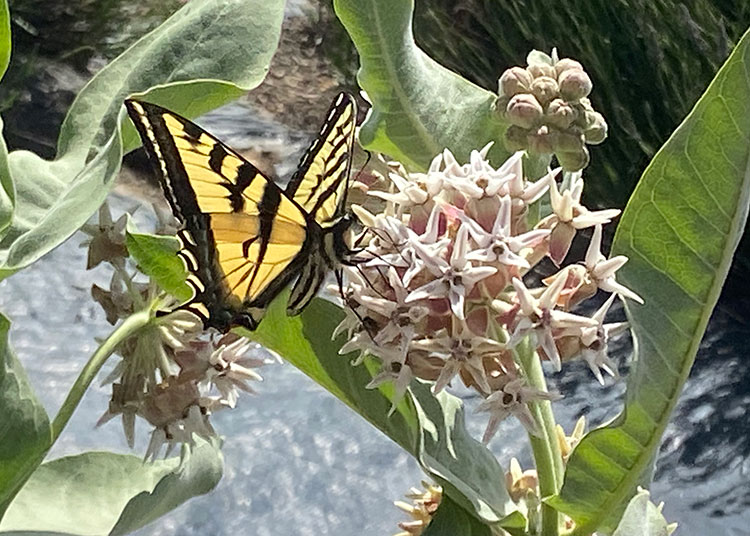CULVER, OR -- A local winemaker says pesticides and herbicides sprayed on neighboring farms have led to an absence of pollinators this spring. Maragas Winery, north of Madras, has around 100 fruit trees - apple, pear and choke cherry. Owner Doug Maragas says the orchard is usually buzzing with bees by now. "It’s really bizarre to see all of the trees blooming, and I have not seen a single honeybee." As of Tuesday, he says, he's only seen one butterfly.
The wine grapes are self pollinating, but bees are needed to keep the general ecosystem in balance on his organic farm. "It does affect - even though the grapes are not requiring pollinators, they’re susceptible - because we’re organic - to pests," Maragas tells KBND News. "So, if you have insects that are not in balance and one takes over, for example that did before, we had a problem with Leaf Hoppers. And there are insects that keep those under control; so that balance is out of balance."
He blames neighboring properties, where he says pesticide and herbicide overspray is sometimes so thick he can taste it in the air. Maragas claims the government provided a payout to local farmers so they could control weeds during recent drought. "It doesn’t take much for spray to really cause havoc on things. I understand why it’s used and the amount of labor that it saves is enormous. However, there is a huge downside."
KBND News reached out to Andony Melathopoulos, Associate Professor in the Department of Horticulture at Oregon State University, and a pollinator health expert. He sent this statement, “Localized downturns in wild and natural bee populations happen and hard to predict. In general, in Oregon we had a slow start with many of our bee species but things are really picking up with some heat. A season like this one can be hard on early season crops that need pollination, because now the heat has started the bloom will go fast and the bees may not be able to catch up in time. In general, growers supplement their crops with honey bees to buffer the invariable ups and downs with wild bee pollination.”
Maragas isn’t buying it. "I don’t do the lab testing to find out on the bees why it’s affecting the bees in the way that they’re doing. But, from what I read and from what I’m seeing, and the fact that there are no honeybees here, maybe it’s a perfect storm between the weather and the chemicals that are sprayed all around us, that’s why they’re not here." He says he’s tried talking with neighbors - many of whom rent out their land and blame those farmers.
File photo, courtesy Maragas Winery: A butterfly lands on milkweed at the Culver-area property in 2020.




